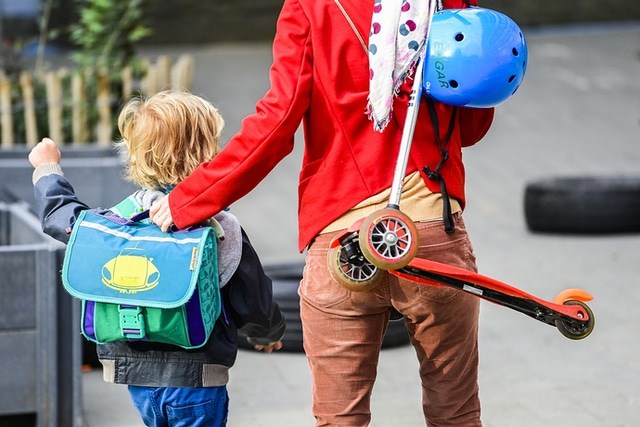The Centres for Student Guidance (CLB) are asking the Government to revise one of their quarantine rules in primary education, stating that if a pupil has to quarantine after a high-risk contact outside of class can still go to school.
When schools reopen on Monday, primary school children whose parents and/or sibling(s) are infected with the coronavirus - and so have to quarantine - are allowed to leave quarantine to go to school, according to this measure.
"We have asked the Government to provide some clarity. Preferably before Monday, of course, because people need to be able to organise themselves," Stefan Grielens, general manager of the Vrij CLB Network, told VRT.
"It seems logical to us that when there is permanent exposure in the family, the child should stay at home. In those cases, the child remains completely in quarantine and does not go to school," he added.
Last Wednesday, the measures for the return to school were decided by the Interministerial Conference (IMC) on Public Health and the country's various Education Ministers.
"The right to learn is such a priority for us that we say very clearly: even if children have to go into quarantine because of an infection in the family, they can still go to school," Flemish Education Minister Ben Weyts said immediately after the meeting on Wednesday.
Related News
- Barely 8% of parents willing to test their child every week
- Omicron dominating general population, but Delta more visible in hospital cases
- Confirmed: Belgium also relaxes quarantine rules for schools
Even after the CLB's request, Weyts did not deviate from this relaxation, reports VRT. His cabinet also emphasised that this relaxation was not decided unilaterally by Minister Weyts, but by 11 ministers of Public Health and Education in Belgium, who together form the IMC on Public Health.
However, the Health and Education Ministers do urge all parents to keep their children at home and have them tested if they show symptoms of illness.
To be clear, this relaxation only applies to pupils in primary education. In secondary education, the rules are different: the same ones that apply in the general population are in force.
This means that pupils who have received their basic vaccination (the first two shots) do not have to go into quarantine after a high-risk contact and do not have to take a PCR test either.
Those who receive only one shot must spend seven days in quarantine. However, this period can be shortened to four days if a daily negative self-test is presented from day 4 to day 7.
Those who have not been vaccinated at all have to spend at least seven days in quarantine after a high-risk contact. From day 7, they must take a negative self-test every day until day 10.
The new testing and quarantine measures come into effect on Monday 10 January and will be in place until at least the Carinal break (end of February).

